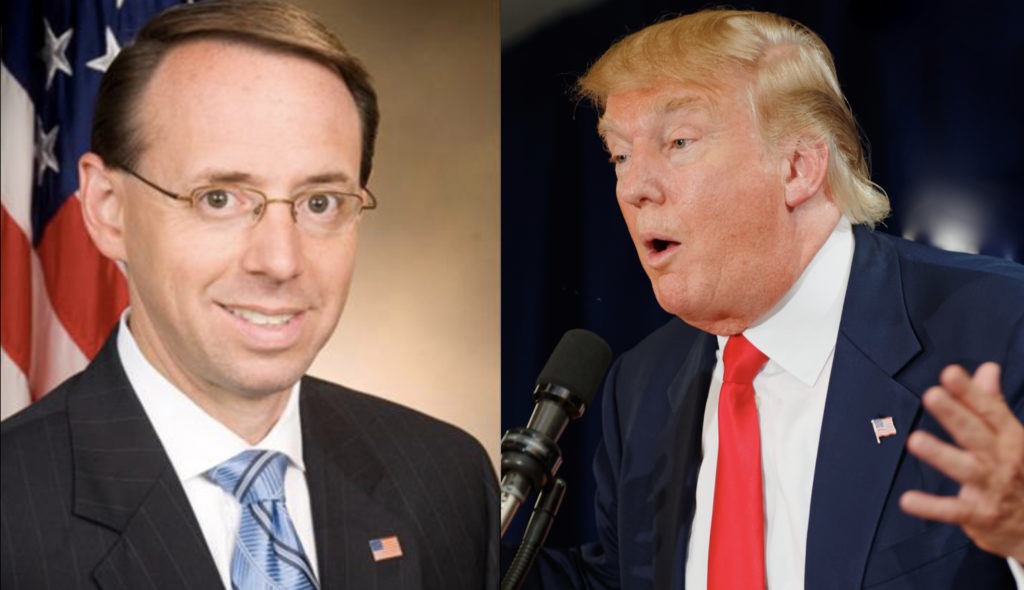Here’s the real story about Rod Rosenstein’s supposed resignation

As Palmer Report pointed out last night, the media has been wrongly reporting Deputy Attorney General Rod Rosenstein’s imminent departure since last year, but Rosenstein has managed to hold onto his job longer than anyone predicted. Now the media is reporting that Rosenstein will depart in mid-March, but once again we have no statement from the man himself. What is going on?
It seems possible to me that Trump’s camp consistently believes that Rosenstein’s departure is close at hand, just as they believe that the Mueller report is nearly finished (these two events are linked in time because William Barr stated under oath that Rosenstein plans to leave when Mueller’s report is finished). To be more precise, it may not be that Trump’s camp believes that Mueller’s Report will soon be finished, and Rosenstein will soon resign, but, rather, they tell Trump that these events are close at hand in order to appease him. Trump’s handlers want the media to report as much, in order to appease Trump.
The DOJ, Trump’s advisers and Trump’s lawyers all approach Trump in one consistent manner when it comes to the Mueller investigation: tell him what he wants to hear in order to keep him from trying to fire Robert Mueller. While this approach to handling Trump has been reported about his former lawyer, John Dowd, and former members of Trump’s staff, there is also a clear, conscious pattern of DOJ officials placating Trump in order to buy more time for the Special Counsel – which has not been as widely reported.
However, the pattern was clear from very early on: Jim Comey testified that he got permission from DOJ to tell Trump that he was not a target of the investigation, even though the DOJ was actively investigating him in a counterterrorism investigation. This shows that Jim Comey discussed and got clearance to make statements that would placate Trump in order to respond to pressure that he knew would come from the President to end the investigation.
It was long ago reported that Trump raged against Mueller in a meeting with his staff, and demanded that he be fired and the Russia investigation be shut down in December of 2017. As reported by Rachel Maddow on Monday, in order to placate Trump and keep him from firing Mueller, Rosenstein is speculated to have withdrawn or halted subpoenas of Deutsche Bank.
In January, the media began reporting that Mueller’s Report would be finished in February, which meant that Rosenstein would also be departing in February. Then last month the Acting Attorney General, Matt Whitaker, stated in a press conference that the Special Counsel’s investigation was wrapping up and should be done soon. Whitaker’s statements seemed to back up the reported end date of mid-February. Now that it is past mid-February, suddenly the date has been kicked to mid-March. This sounds to me an awful lot like the same pattern of when faced with the possibility of Trump making imminent moves to shut down the Special Counsel’s investigation, the DOJ placating Trump and buying more time for the investigation
It wouldn’t surprise me if Mid-March comes and goes and Rod Rosenstein is still in office. It wouldn’t surprise me to see several more departure dates for Rosenstein come and go, and it wouldn’t surprise me to see Rosenstein hang on until a report is issued and some major arrests are made, or until he is finally fired.

Cheryl Kelley lives in the DC area with her husband and young son. She is active in government and politics.
